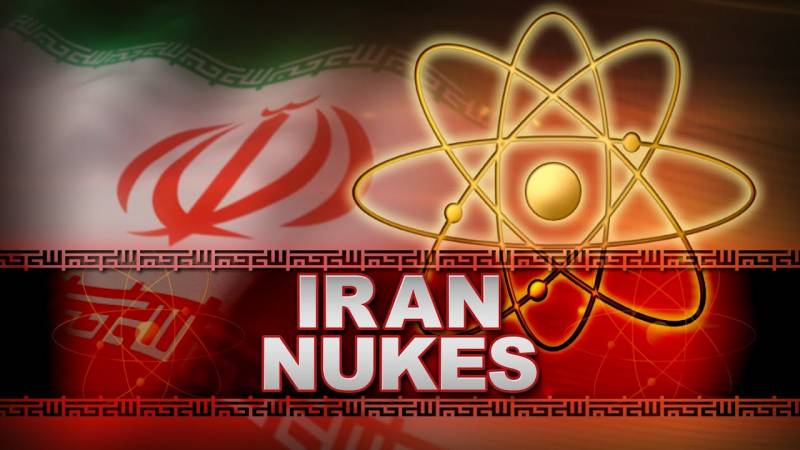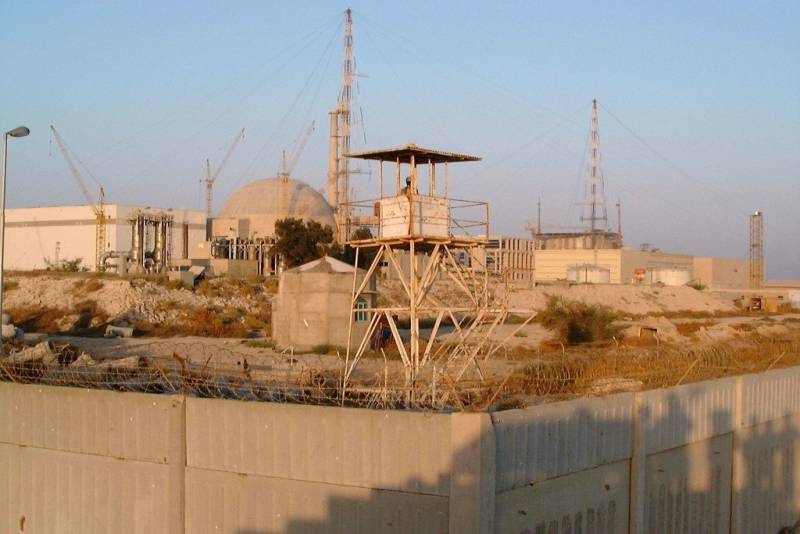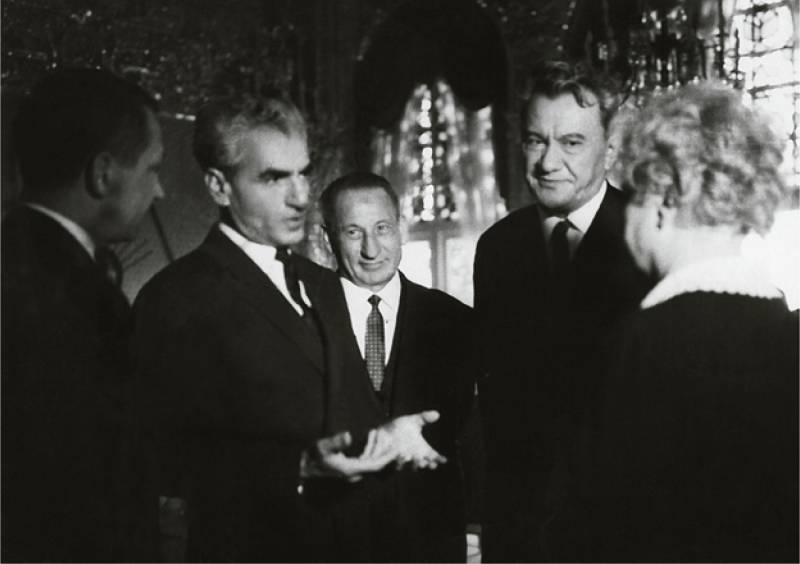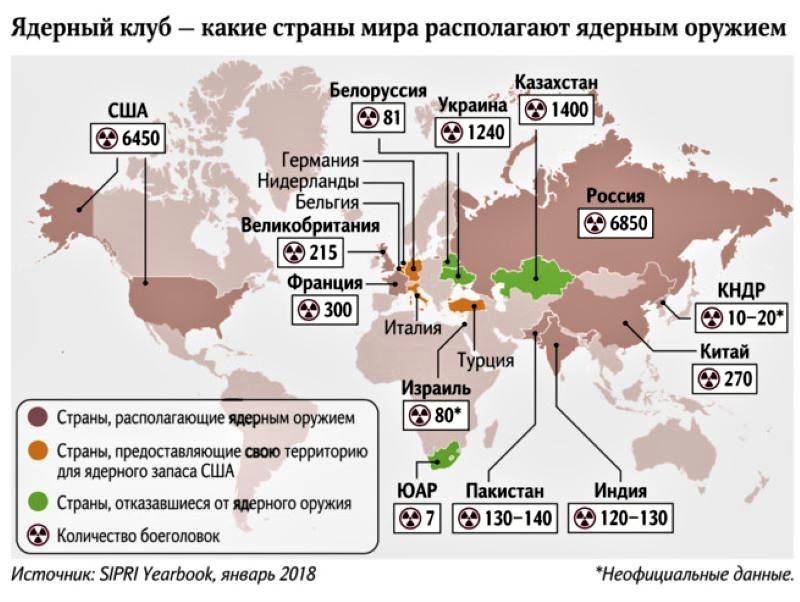Check and bomb. From start to finish

No plans but...
In 1972, the Shahinshah of Iran, Mohammed Reza Pahlavi, declared that his country
It is now clear to everyone that Persia-Iran, despite the country's age-old backwardness proclaimed by the West, had every chance of catching up with no less backward Pakistan in the nuclear race. Everything depended only on the good will of potential partners on different sides of the political divide.
However, the global project actually hung up after the Islamic revolution, when, as a result, the newly-minted republic of Iran with tyranny is cooler than any monarchy and turned out to be neither at all with either one nor the other. It was difficult for the new leaders of the country to figure out what to do if the construction of a nuclear power plant and an entire nuclear center in Bushehr for Iran was started by neutral Germany, and completed by Russia.

The completion of the construction of the century on the coast of the Persian Gulf has been going on for more than a decade, but Russia is definitely not to blame for this, having accepted a dubious legacy from the USSR. Sanctions followed, blockades, a war in neighboring Iraq, reminiscent of a "show flogging", and a nuclear deal, as everyone calls the JCPOA - a joint comprehensive plan of action.
In fact, it was really a deal in which, in exchange for Iran's refusal from military developments, sanctions were lifted from it. Now they have been returned to Iran, and the bargaining on the JCPOA is being dragged out to the point of obscenity. Due to global changes, we have to remember again and again how it all began.
Tel Aviv trail...
Some foreign media in the mid-70s reported on Iranian-Israeli cooperation in the development of "double" nuclear technologies in Dimona - Israel's nuclear center (Negev desert). This was predetermined by the then de facto allied relations between Israel and monarchical Iran.
However, Tel Aviv and Tehran did not deny or confirm such reports. Now the confrontation between Tehran and Tel Aviv is teetering on the brink of a hot one, and half a century ago, Iran helped Israel stand against all at once - neighboring Arab countries, Saudi Arabia and Iraq.
Now Iraq, having lost everything or almost everything, is forced to become a semi-satellite of Iran, but this does not affect relations with Israel in any way. If with the Shah's Iran in Tel Aviv they were always ready to trade and bargain, then with the vehemently Shiite Islamic Republic this seems to be impossible by definition. With the Sunnis, the Jews, it seems, are somehow easier.
... And the position of Moscow
It is noteworthy that in the same 1972, during the visit of Mohammed Reza Pahlavi to the USSR, the Iranian side carried out an assertive sounding, not typical for people from the East, about Soviet assistance in the implementation of the Iranian nuclear energy program. The main problem for our special services was the complete unwillingness of partners to maintain at least the appearance of secrecy.
According to the testimony of old workers in the nuclear industry, Shah Reza Pahlavi himself was especially distinguished in this sense. Soviet Prime Minister A. N. Kosygin, in response, stated the Soviet position on this issue: the USSR can help Iran in the implementation of this program on the condition that it will not be transformed into a military program.

The Iranian side, in response, assured that such a transformation is not planned, but Iran does not seek to increase the dependence of its nuclear energy on "Western" countries. Therefore, he intends to get acquainted with the experience and achievements of this Soviet industry for possible cooperation.
Meanwhile, Iranian specialists sought to study Soviet nuclear power technologies used abroad. So, in May 1978, the Iranian government delegation headed by M. R. Pahlavi, which included specialists from the Iranian Atomic Energy Organization, was on an official visit to Bulgaria.
The delegation also visited the Kozloduy NPP, where they got acquainted with the work of the Soviet VVER 440/230 power units. According to some reports, the Iranians were also interested in the possibility of re-exporting "surplus" uranium ore supplied from the USSR to the PRB, and Soviet-Bulgarian scientific developments in uranium enrichment and the use of spent nuclear fuel.
The parties agreed to establish cooperation in these areas, which the Bulgarian side certainly agreed with Moscow. But Iran soon found itself in a political crisis that led to the collapse of the Iranian monarchy.
Uranus in Iran
It is also known that in the early - mid-70s, Soviet specialists participated in the additional exploration of large deposits of uranium ore in the south and southeast of Iran, most of which were developed in the late 70s. At that time, Iranian specialists visited uranium mines on the Caspian peninsula Mangyshlak, where large reserves of uranium ore (until the mid-80s - the main ones) are concentrated in Kazakhstan.

In this regard, it is difficult to consider the visit to Tehran in March 1968 of the head of the Kazakh Communist Party D. A. Kunaev and his negotiations with the Shahinshah, which seemed to be ahead of schedule, unrelated to the atomic plans of Iran. But the shah had already called for a visit by the Iranian delegation to the Kazakh INP and the Center for Nuclear Research in Alatau, and Kunaev supported this request. An Iranian visit to these facilities took place (Iranian atom - Kazakh trace) in 1972, and with the participation of the Shahinshah himself.
Later, in the late 90s. The Associated Press (USA) disseminated information, citing the CIA and the Iranian monarchist opposition, about Iran's attempts to buy at least 1 (one) thousand tons of refined uranium ore from Kazakhstan, bypassing the sanctions of the UN Security Council. The Kazakh Foreign Ministry strongly denied this information.
But the rebuttal was most likely "subjective." For on May 15, 2017, Yerzhan Ashikbaev, Deputy Foreign Minister of Kazakhstan, told local media that Kazakhstan was “trying to overcome the veto imposed by the new US administration on the supply of natural uranium to Iran.”
Moreover, at the same time it was reported that in March of that year, Kazatomprom JSC signed an agreement for the supply of 950 tons of uranium concentrate to Iran. The contract was calculated "for three years and was beneficial for Kazakhstan."
According to E. Ashikbaev, the Iranian market "would be a breakthrough for the Kazakh uranium industry." But even though the contract "provided for full compliance with the requirements of the well-known UN Security Council Resolution No. 22231 regarding the Iranian nuclear program", at present, its execution remains in question.
Such uncertainty with the agreement has developed, at least in terms of the timing of its implementation. It doesn't help that it was previously approved by IAEA specialists. It was also advertised by them and, according to all the "atomic rules", was subject to regular monitoring by the agency's experts. It is significant that since then there has been practically no official information on this contract.
- Alexey Podymov, Alexey Chichkin
- i.ytimg.com, whowhatwhy.org, e-news.pro, archived by the authors
Information